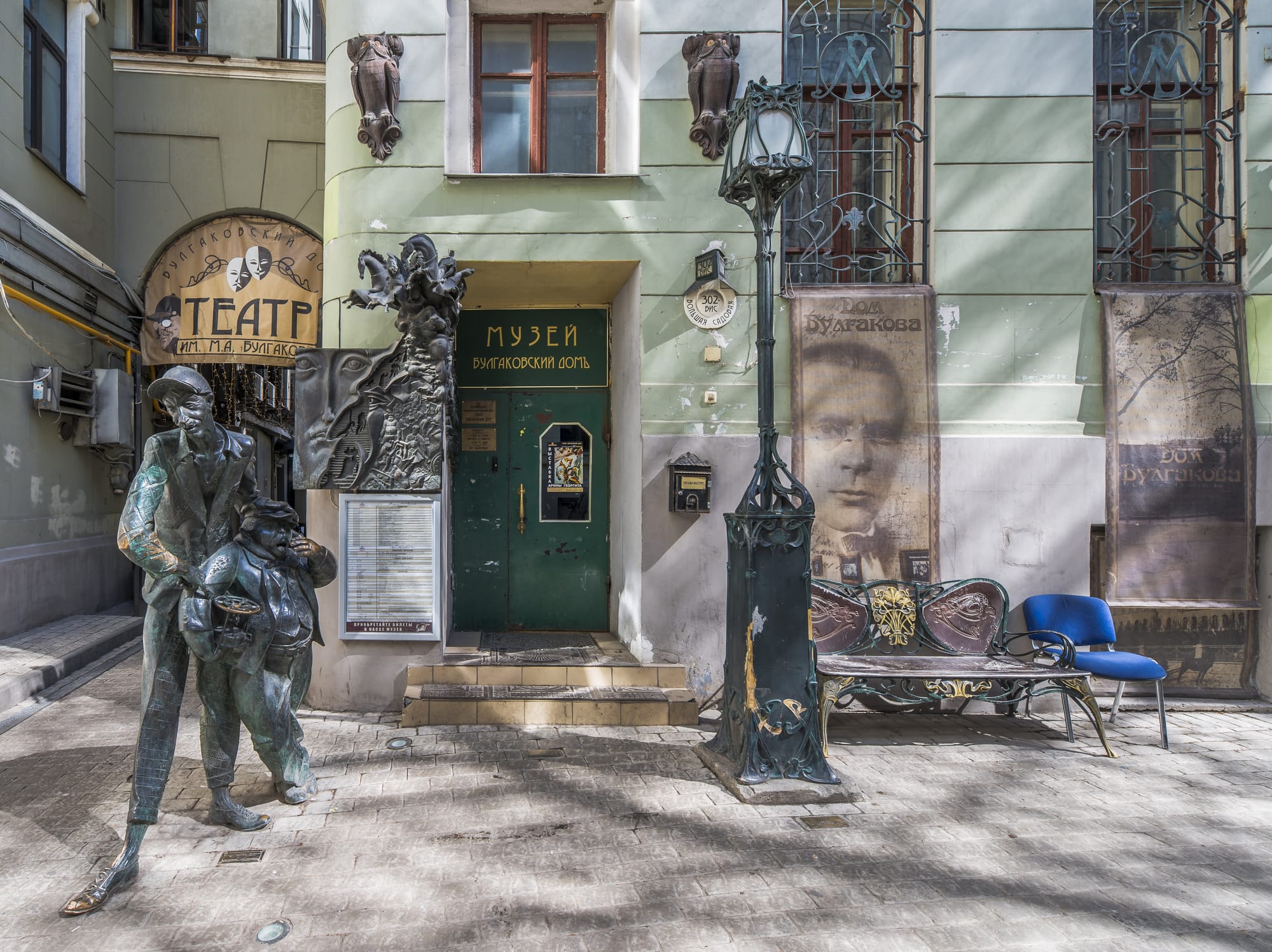Notes from Underground

“The Russian soul is a dark place.”
― Fyodor Dostoyevsky, The Idiot
Given the events of the past week, I’m compelled to note that this is not a post chiefly concerned with the horrifying massacre in a concert hall in suburban Moscow on March 22– which was hideous and unwarranted in every regard. The Afghanistan-based ISIS- Khorasan splinter group, recruited in Tajikistan, sought only chaos. There’s a theory that the long-popular band Piknik drew their fire—said band has been called “regime-compliant” in the media and slagged by an array of factions for playing Crimea after Russia annexed it—but certainly Russian civilians should not have to pay for the depredations their military has visited upon the region, most notably since February 2022 against the citizens of Ukraine. (Crocus is the bouge-y, oligarch-friendly go-to venue—e.g. in 2013, apparatchik-in-training Trump stood with fatuous, fake positivity on its stage while staging the Miss Universe pageant,)
The toll from the acts of said ISIS splinter group represents a failure of Russia’s infrastructure—similar in ways to the disastrous special forces assault on the Besian school in which Chechen terrorists took hundreds of hostages in 2004. Russia had to be well aware—as American intelligence was--of the rising ISIS loathing for Russia, who, as Foreign Policy magazine notes, is "seen to be aiding Shia countries and groups," most notably via Putin’s support of Syria’s murderous Assad.
All that said, this post finds itself in not in a Military vertical I will sometimes use on this site, but as a Books post. It involves the life and work of two great Russian novelists, Fyodor Dostoyevsky and Mikhail Bulgakov, and a brief snippet of my own history. So let me post what follows—for it depicts the lives of two profound figures suppressed by authoritarian regimes–in honor of the late Alexei Navalny—whose death in prison was tossed off as “an incident” by Putin. This although Navalny’s name, the New York Times has verified, was never spoken by the Kremlin leader in public :
https://www.nytimes.com/2024/03/17/world/europe/navalny-death-putin.html
Let this account also stand in honor of The Wall Street Journal’s Evan Gershovitch, whose detention (for simply doing his work as a reporter) was extended yesterday to June 30. The WNBA’s Brittney Griner was thankfully released before the Ukraine invasion was quite so prolonged, but sanctions seem toothless. Pressure must be kept on Putin regarding the war (even as the House Republicans dither on arms aid) and on the case of Gershovitch’s unjust confinement in a grim Moscow prison. repatriated. Follow that story (and today’s Read-a-Thon) on the paper’s site: https://www.wsj.com/news/evan-gershkovich
To the lessons of literary history, then. A classic world novel frequently assigned in college and even in some secondary schools is Fyodor Dostoyevsky’s “Crime and Punishment,” a thoroughly involving immersion in the psyche of a guilty man that came out serially to wide acclaim in 1866. (Born in 1821, earlier than Tolstoy and later than Turgenev and Pushkin, he stands beside them in Russian literature’s front rank.)
The critic Christopher Sandford cites a notation the author made late in his career: “I am proud that I was the first to describe a true representative of the Russian majority, the first to show the ugly and tragic side of his soul. I am the only one who has portrayed the tragedy of the underground.”
Less celebrated than other novels in Dostoyevsky’s body of work is “The Idiot”, which appeared in 1868 to stand apart from his other masterpieces. As opposed to the earlier book’s psychopathic Raskolnikov, the later novel’s Prince Myshkin wanders through his titular role as an innocent. His story incorporates a barely fictionalized portrayal of his the writer’s most testing experiences--his epilepsy and his brutal subjugation by the Tsarist state.
As Sandford depicts: “A love affair went awry, leading to an apparent suicide attempt. After suffering further mishaps, Dostoyevsky found himself in a small utopian-socialist St. Petersburg literary circle." His artistic and political allies were a close group; but such ties led to what would become the “gruesome pantomime” of Semyonov Square.
In this infamous case, his ordeal with the Tsar hit a nadir near Christmas of 1849 as sometime “lieutenant-engineer” Dostoyevsky stood bound to a stake awaiting execution for “conspiracy of ideas” by firing squad,
Snow fell as a priest approached to say, “The wages of sin is death,” give each man the cross to kiss, and three rows of 16 marksman took aim to a drumroll—until a carriage raced up with a terrifyingly staged commutation –“by order of the Tsar”--of the death sentence. Several years of hard labor on a Siberian prison camp followed.
Near his life’s end, the author would speak at the unveiling of a statue of Pushkin, insisting Russia had become a symbol of of universal brotherhood: “Oh,” he told a crowd that applauded and huzzahed, “ the nations of Europe know how dear they are to us.”
A stark contrast, clearly, to present-day Putin and his approving friend Trump, who said Russian should do “whatever the hell they want” to countries our ex-President feels are not paying their share of the cost of maintaining NATO.
The deserving if lesser-known Bulgakov (born in Kiev in May 1891) has been well-served by a 1997 translation of “The Master and Margarita,” recently re-issued as a 50th Anniversary edition (see link below), with a foreword that proceeds from what the New York Times Book Review said: “One of the truly great Russian novels of [the twentieth] century.” It’salso been assessed by Joyce Carol Oates as “Brilliantly flamboyant and outrageous.”
The satire defies summarizing, but makes much of the comic and fantastical characters who inhabit a Moscow literary demi-monde (suggesting their alienation from Stalin’s brutal era of collectivization and five-year plan), as its alternating chapters that recount of the inner torments of Roman procurator Pontius Pilate in ancient Jerusalem when confronted with a not-quite-Christlike character called Yeshua.
The manuscript of Bulgakov’s long-gestating novel was sufficiently daunting to authorities that Stalin himself took an interest, despite having supported the author’s playwriting in the past,. And yet the novel as it stood in 1930 it was politically unpublishable. “For me not being able to write is tantamount to being buried alive,” he wrote to Stalin himself, but it would be ten years before he completed the work, and soon thereafter died in March, 1940. Publication finally came in late 1966, when the first section would emerge in a Moscow monthly, with the latter section coming in 1967.
Here some personal history enters. As an admirer of the book, I had a careworn copy which in the Spring of 2011 I put in my suitcase for a trip to Moscow. Job one was to be a meet-up with a friend who had a business beef with a Russian tech plutocrat. For me, it was a fact-finding, below-the-radar look-see, at sniffing distance from actual reporting. My friend, apart from trying to collect the hundreds of thousands U.S. dollars he was owed by a corrupt plutocrat’, had enough of an elite military history to have a recent secretary of state’s contact info. A sort of optimism prevailed. There would be vodka, and maybe a debt collected.
I found out just what could go wrong as I was busy checking my Marriott Grand hotel room lamps and air vents for surveillance bugs in (feeling the residue of what master translator Richard Pevear has dubbed , “The subtle Soviet sense of eyes and ears everywhere”), when the call came that my friend’s visa had been pulled before he could change planes in France for his Moscow flight. So--what to do but commence tourism, with the key stop being the Bulgakov Musueum, where from 1921-24 the author lived with his wife and among the coterie of artists and activists who lent his entire career a forbidden aspect to the state watchdogs.

Disenfranchised from his very métier, the author lived on (he died in March 1940) with a default sinecure he had lobbied for—it was personally enabled by the “intimate murderer” Stalin--as a functionary in the closely watched Moscow Art Theater. This existence in some ways resembles the occluded life Ewan McGregor’s title character lives in post-1917 days in the current Paramount+ with Showtime (really, marketing people?) offering, “A Gentleman in Moscow”,
With evil being perpetrated by the current regime both in Russian and their sometime possession Ukraine, with the Putin hegemony not lacking for apologists perilously close to the summit of our own body politic, perhaps it’s exactly the moment to look at the lessons from defiant antecedents who protested at great personal and career cost. As quoted by the Times, recently exiled film critic Anton Dolin found the movie version’s success unsurprising: “The film amazingly coincided with the historical moment that Russia is experiencing, with the restoration of Stalinism, with the persecution of the intelligentsia, and when the author of the film began to be subjected to this persecution, a completely magical rhyme arose.”
To sum up: when activist politics are lethally suppressed, when initiatives for peace in the world’s hot zones are frankly scoffed at by autocrats, perhaps creative works can show the way– or at least assuage our sense of powerlessness.
------------
Sources of both wisdom and enjoyment that I gratefully leaned on for this post:
Vintage Classics edition of “The Idiot”:
https://penguinrandomhousehighereducation.com/book/?isbn=9780553901894
“The Master and Margarita” 50th Anniversary edition:
https://www.penguinrandomhouse.com/books/531360/the-master-and-margarita-by-mikhail-bulgakov-a-newly-revised-translation-by-richard-pevear-and-larissa-volokhonsky-introduction-by-richard-pevear-foreword-by-boris-fishman/


Comments ()